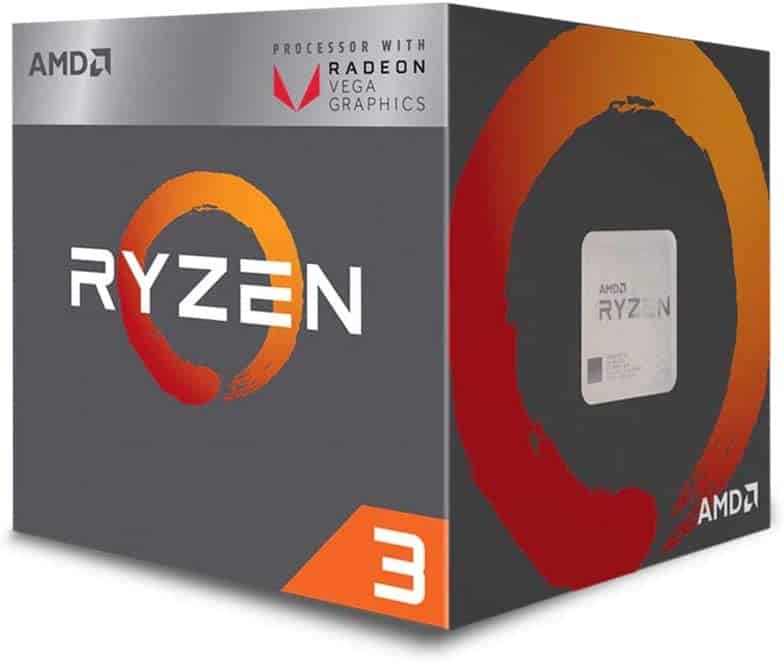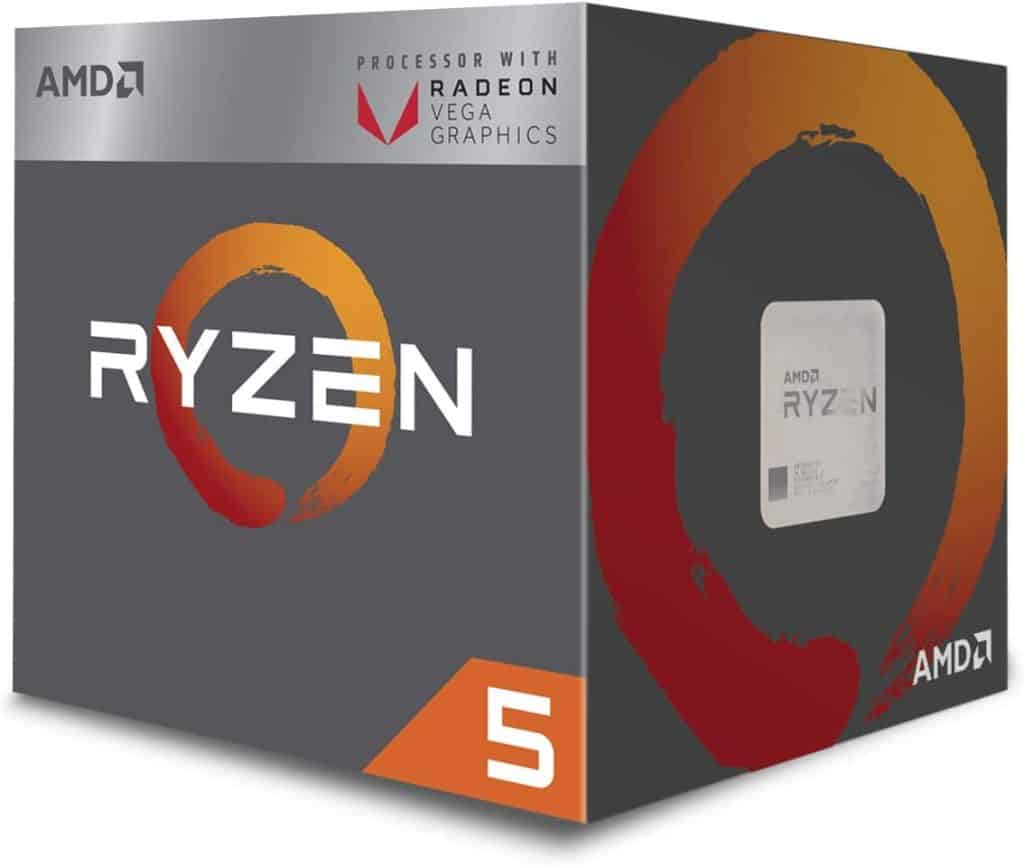If your computer were a car, your processor would be the engine. It’s the part that runs the show, and probably is the most important (and possibly most expensive) component of your computer. With that in mind, it’s vital that you get the right processor for your computer or laptop.
In recent years, AMD’s Ryzen line of processors has been among the best out there. Specifically, Ryzen 3 and Ryzen 5 processors are the most common AMD processors available in lots of general-purpose laptops and desktops.
But how does the Ryzen 3 vs Ryzen 5 compare? Let’s find out.
Ryzen 3 vs Ryzen 5
AMD wasn’t always the leader in the CPU market, and between about 2006 and 2016 it actually lagged behind Intel a lot. But in 2016 it revealed a new architecture for its processors, which put the company back on the board.
Now, just a few years later, AMD processors, including the Ryzen line, hit the top of almost every chart, even when compared to similar Intel processors.
What makes the Ryzen 3 and 5 better than their Intel counterparts is the number of physical cores AMD has managed to put under the hood, and more specifically how those cores are laid out.
Comparing Cores
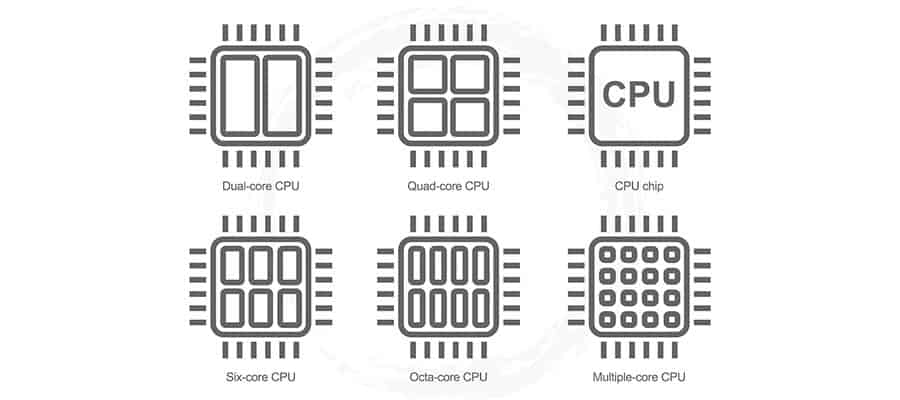
If the CPU is your computer’s engine, then the different cores are kind of like the pistons in the engine. They’re the ones getting the actual processing done, so broadly speaking, the more the merrier.
All Ryzen 3 processors and most Ryzen 5 processors have 4 cores, with some Ryzen 5 versions having as many as 6. This makes them both decent processors for doing general-purpose things like running Microsoft apps, using the internet, or making Zoom calls.
Keep in mind though, that cores can have a different number of threads, so let’s talk about that part too.
Comparing Threads
Threads are essentially how many things an individual core can do at once. For example, if a core has two threads, it will almost act like two individual cores working on two different tasks.
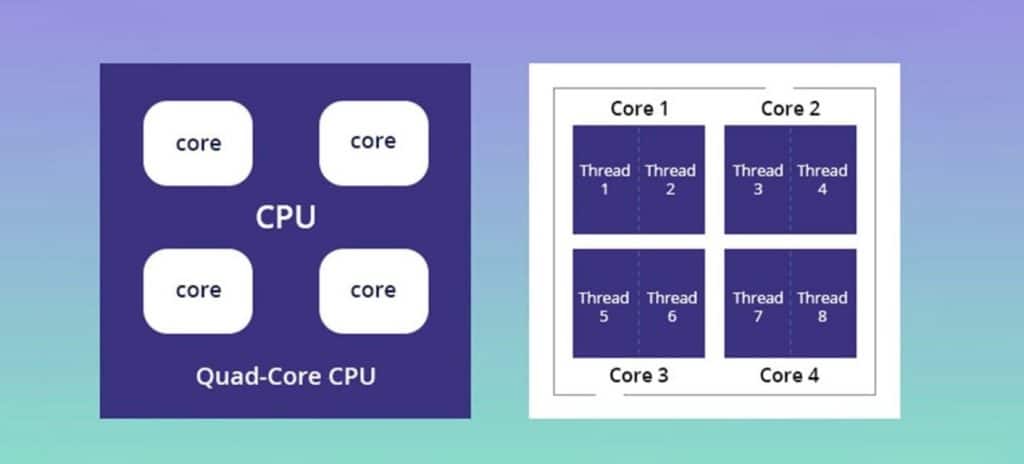
Just like with cores, more threads usually means better performance, but it can also mean the processor gets a little bit hotter.
Ryzen 3 has either 4 or 8 threads, meaning that cores either have 1 or 2 threads on each of them, depending on the processor.
For Ryzen 5, there are 4, 6, 8, and 12 thread versions, meaning just like the Ryzen 3, there are either 1 or 2 threads on each core, with simply more cores to multiply that against.
Again, more threads really just translates to more things going on at once. Most apps and things only take one thread at a time, and probably don’t even take up that thread’s whole capacity. But if you’re planning on doing lots of things at once, it might be worth getting some extra cores.
Comparing Clock Speed
Sticking with the car engine metaphor, the clock speed is the closest to a car’s RPM. The clock speed measures how many cycles a processor makes within a second, measured in GHz.
Again, the higher this number is, the better performance will be in general. However, keep in mind that more cores and more threads amplifies this effect. They aren’t measuring the same thing really; a clock speed measures how fast the processor can run, where a core or thread count measures how many things a processor can do at once.
The clock speed varies from processor to processor, but the Ryzen 3 line tends to have a base clock speed of around 3.5GHz, with a maximum clock up to 3.7GHz. For the Ryzen 5, the base speed is usually around 3.6GHz, with a maximum speed of up to 3.9GHz.
Comparing Cache
Admittedly, this is where that car metaphor kind of breaks down. Typically, your processor is pulling data from the memory on your computer, also called the RAM. But data it uses extremely frequently it will store in the cache, which is sort of like mini-RAM that’s stored on the processor itself.
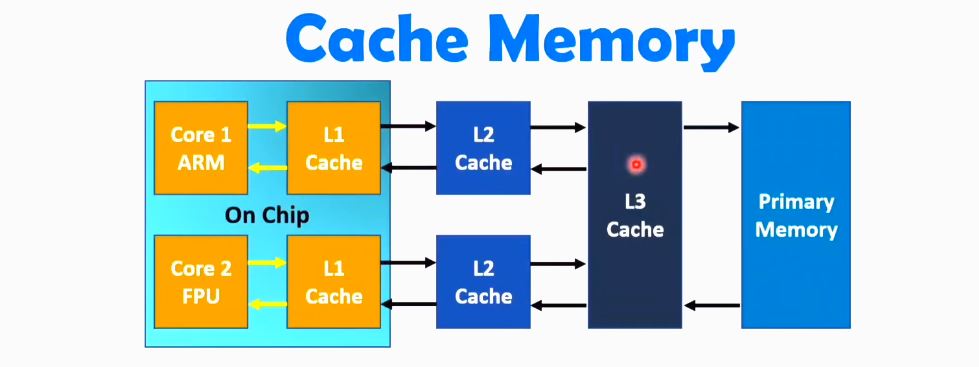
Just like in your wallet, the more cache there is, the better.
The Ryzen 3 line generally has 16MB of cache, with some versions having 8MB per CCX (which is just a set of cores), and others having 16MB per CCX. The Ryzen 5 has a little bit more on average, going from 8MB to 16MB per CCX, or a total of up to 32MB.
All of these processors also have an additional .5MB of cache per core, in some cases as much as 3MB total added on top.
Comparing Sockets
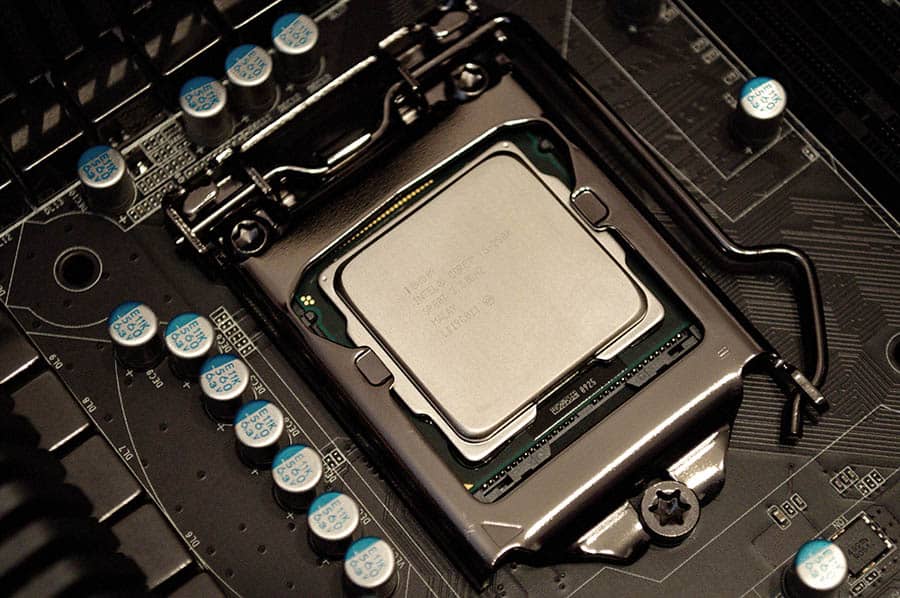
Socket types are a pretty minimally important detail after your computer is put together, but to save a little time anyways, both the Ryzen 3 and the Ryzen 5 lines use the same socket type, called AM4.
That isn’t necessarily to say that every motherboard will be perfect for either one, but it does mean that any motherboard that works for one, will work for the other.
Other Unique Features
Processors in this price category usually use a process called “binning,” which means that the processors themselves are really higher-level processors that had issues with one or more cores. Instead of throwing the processor away, AMD will just disable those faulty cores, and sell the processor at a reduced price.
What Ryzen does different, though, from Intel, is that they disable the cores symmetrically across CPU complexes (called CCXs), instead of simply disabling an entire CCX. This can mean that there’s a little latency between the different CCXs, but the benefit is that you have the cache from each of the CCX, and overall there’s just more of it.
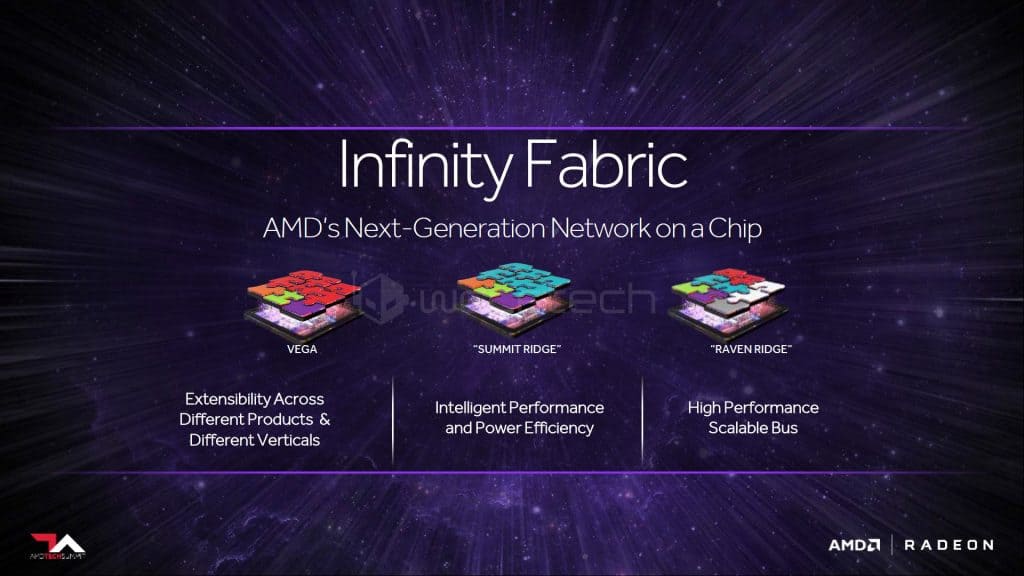
And AMD did its best to pare down that latency by creating something they call Infinity Fabric, which is pretty much just a fancy super-fast cable for the data to connect through.
Example Comparison: Ryzen 5 2400g vs Ryzen 3 2200g
To demonstrate some of the similarities and differences between the AMD Ryzen 3 and AMD Ryzen 5 processors, let’s compare and contrast on specific processors. In this instance, we’ll look at the Ryzen 5 2400g and Ryzen 3 2200g.
| Ryzen 3 2200g | Ryzen 5 2400g | |
|---|---|---|
| # of cores | 4 | 4 |
| # of threads | 4 | 8 |
| Base clock speed | 3.5GHz | 3.6GHz |
| Max clock speed | 3.7GHz | 3.9GHz |
| TDP | 46-65W | 65W |
| Total overall cache | >6MB | >6MB |
| Socket | AM4 | AM4 |
| Price | Check Price on Amazon | Check Price on Amazon |
To start, let’s compare cores and threads. Both CPUs have four cores, but the difference is that the Ryzen 5 2400g has each core split into two different threads, effectively giving it double the number of threads. This means double the capacity to do multiple things at once, at least in theory.
Looking at clock speed, the Ryzen 5 comes out a clear winner, but for being an entire model behind, the Ryzen 3 keeps up. The difference between the two is pretty negligible, and especially for things like gaming, both clock speeds are well within the acceptable range.
TDP, or power consumption, isn’t something we looked at too much, partly because it just varies a lot between processors. That said, both of these processors have similar power draw, so in that aspect, it’s a tie.
They both have a decent amount of cache and keep in mind that the cache works a little bit harder because of AMD’s fancy layout.
Ultimately, both of these processors are solid budget CPUs. The Ryzen 5 2400g is certainly the way to go, but it also tends to be around $80 more expensive, depending on where you get it.
If price isn’t a huge factor, or you just have the $80 to spend, the Ryzen 5 is the better option. But if price is a big factor, and a budget CPU is what you’re looking for, the Ryzen 3 2200g is a solid choice, not only in a vacuum but compared to most everything else on the market too.
Conclusion
Ultimately, both the Ryzen 3 and Ryzen 5 are cost-effective CPUs that look great when compared against the comparable Intel processors. Especially for those looking to get a little bit more muscle, even if it’s at the cost of a little bit of latency, the Ryzen line is the way to go.
The Ryzen 3 line is going to be for those who aren’t doing as much at any given time with their computer. If you only browse the internet and type in a Word document, this processor is for you.
But if you need a little bit more, maybe because you like to have a few things going or because you like complicated programs like photo or video editing software, the Ryzen 5 probably has that extra oomph you’re needing.
